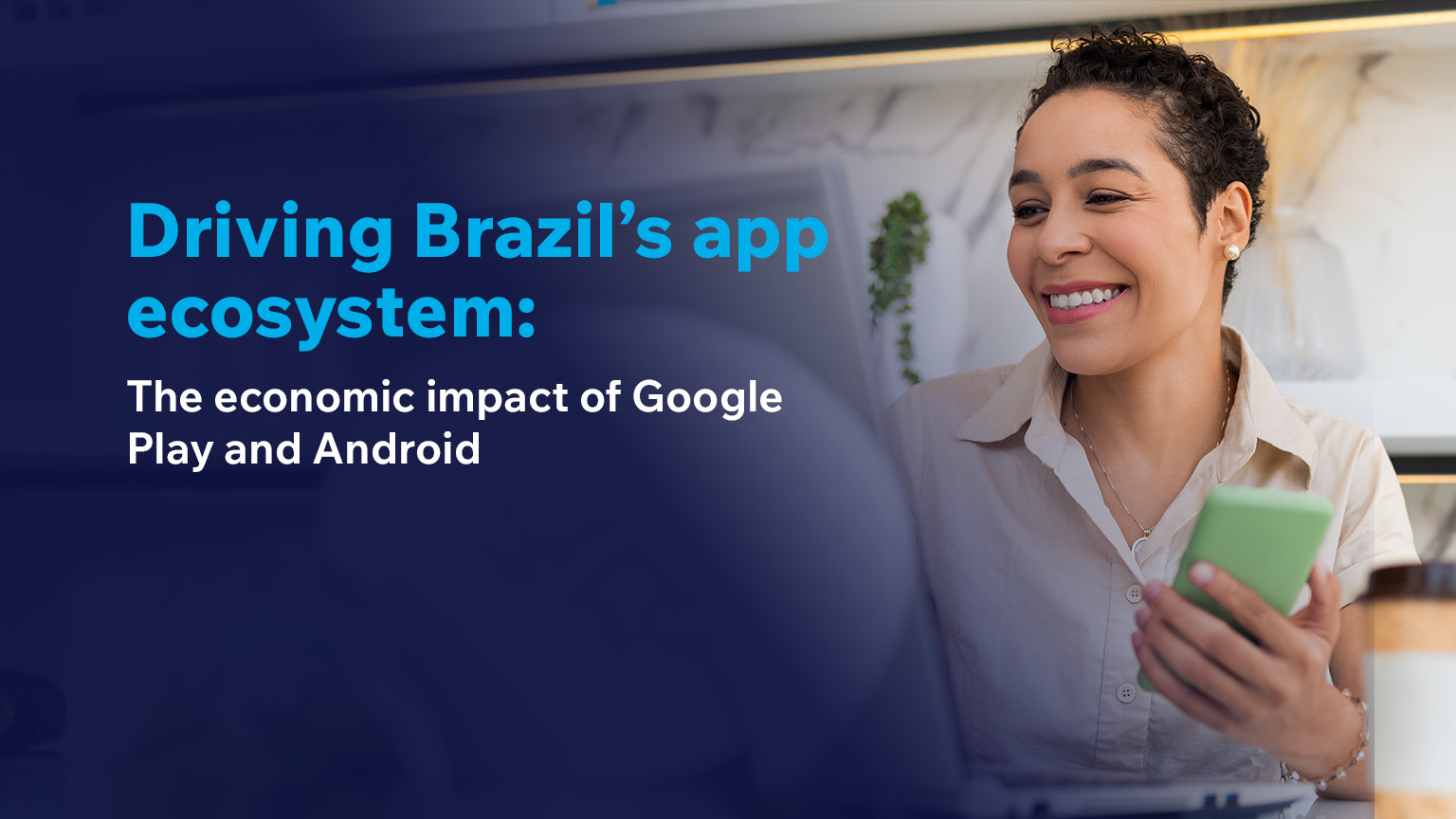With the largest Internet population in Latin America and the fourth-largest market for app adoption globally, Brazil is an established mobile market in the region. Mobile app uptake has transformed how Brazilians live, work, and play, with the population highly engaged with the digital economy.
A key enabler of this app economy growth has been operating systems like Android, which allows smartphones and other devices to run apps and serve as bases for manufacturers to build their hardware. Android’s open-source nature has facilitated innovation within the market, driving down smartphone prices and expanding choices for consumers. In Brazil, better affordability and accessibility of Android-powered devices have led up to 35.5 million more Brazilians being connected to the Internet through smartphones, potentially adding up to BRL 382 billion to the country’s gross domestic product (GDP) between 2017 to 2022. Notably, in 2022 alone, Android’s contribution to Brazil’s GDP reached BRL 88 billion, representing approximately 0.89% of GDP.
In addition, the expansion of the app economy in Brazil has resulted in greater demand for mobile apps, improving employment opportunities within the country. In 2022, the Android app economy supported 238,110 jobs, both in the direct app development field and beyond.
Android and Google Play’s role in improving the lives of Brazilians
Android and Google Play enrich the lives of Brazilians by facilitating access to an extensive array of apps that can be downloaded from various platforms. Android users in the country enjoy increased choice through their use of the operating system, and 86% of users agree that Google Play allows them to access a range of apps, including tools to increase daily productivity. Android was also pivotal during the COVID-19 pandemic, allowing Brazilians to access information and services. For instance, 94% of respondents used their device to make digital payments via Pix, outlining Android’s role in boosting financial inclusion. Users could also access online learning materials and telemedicine services through Android and have continued to do so, outlining its lasting legacy in adding convenience to their daily lives.
Amid increasing digital usage, safeguarding users’ interests remains a top priority. Features such as Google Play Protect, which scans 125 billion apps on Android devices daily, reduce the risk of harmful apps being downloaded onto user’s devices.
Android and Google Play create a flourishing app ecosystem for developers
Together, Android and Google Play create an enabling environment that supports the livelihoods of app developers. Android’s open-source nature reduces development and maintenance costs for developers by up to 54%, while Google Play offers a cost-efficient avenue for publishers to distribute their apps without incurring high service fees.
Google Play also enables developers to achieve global exposure – 87% have expanded their presence internationally via the platform, with 18% of their revenue originating from overseas users. Features such as Google Play Explore further help to boost the visibility of developers by providing users with personalised app recommendations, ensuring apps reach their intended target audience across the globe.
It is crucial to support the growth of the vibrant and dynamic mobile app market in Brazil, which is a testament to the country’s potential as a thriving app development hub. Continued collaboration between key stakeholders, such as the government, industry leaders, and businesses, can help fuel the country towards further growth, with Android and Google Play playing central roles in enabling the market to reach its full potential.
Read coverage of the report launch here (in Portuguese).
Download the full report in English or Portuguese by clicking on the links below:


Authors












